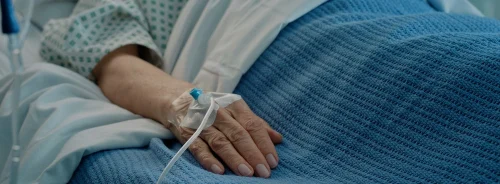ICU Management & Practice, ICU Volume 11 - Issue 4 - Winter 2011/2012
Saïd Hachimi-Idrissi,
Coordinator
Sherry Scharff
Editor
Advances in technology continue to have an impact on the healthcare system. With the focus on limiting and prevention of medical errors over recent decades, many of these technological developments have centred around the training of new physicians. The Clinical Skills and Simulation centre, or simply ‘Skills Lab’ located within the faculty buildings at UZ Brussels has become an integral part of the “Integrated Medical Campus Jette Assistance Landscape”.
Background
Traditionally, the medical school at the Free University of
Brussels devoted a considerable amount of attention to bedside clinical
training and internships. For many years, this was accomplished by students
preparing the preclinical patient contacts with clinics and clinically oriented
summer seminars for students who succeeded in their first year of medical
education.
In 1993, at the Etterbeek campus, the medical skills
course was introduced to the first year curriculum as a nursing course and
included practical work, plus a nursing observation and placement on various
nursing units in UZ Brussel.
From then onwards, the concept of “problem based learning” was implemented in the curriculum. Students were confronted with a range of multidisciplinary problems and various elements of knowledge needed to be integrated to find answers to the questions raised. In addition to the acquisition of separate theoretical and actual (practical, clinical) knowledge, students were given the opportunity to have earlier contact with realistic patient problems.
Concept of Problem-Based Learning
Within the constraints of being given a realistic problem to be solved with knowledge gained within the classroom and in a clinical setting, the learning process is thus initiated and is continuously stimulated by exposure to the changing variables inherent to the practice of medicine. This approach leads to the development of appropriate attitudes, develops social and communication skills in order to foster successful interactions between team members as well as between caregivers and patients. It also serves to promote the development of adequate skills needed to provide professional assistance through conversation, in addition to the preclinical development of cognitive and motor skills associated with actually performing the physical examination and procedures.
Rationale
The skills lab was designed with the intention of improving
preclinical competencies and skills to learn and optimise simulation and
training. These include: professional attitude, communication skills and
interview techniques as well as cognitive and motor skills and physical
examination procedures. The aim of incorporating this important programme into
the curriculum is clear: Student doctors benefit greatly from a safe
environment where they can hone their skills, deal with simulated treatment
situations; and should errors occur, they should be able to manage and critique
their performance without undo danger to actual patients; thereby avoiding “rookie
mistakes”.
The skills lab also allows trainees to acquire competences
in medical history, clinical research, technical research and treatment,
physician-patient communication and clinical consultation.
The “Clinical Skills and Simulation Centre” is
coordinated and controlled by the Department of Critical Care, more specifically
by the lecturers and instructors of the courses under the medical skills
umbrella. However, as multidisciplinary consultations are a significant part of
the process in the emergency room and critical care setting, teachers from
other disciplines are also involved to enrich the experience.
The Clinical Skills and Simulation Centre focuses on basic medical training, further education and lifelong learning which includes the continuous application of new guidelines to healthcare providers and industry.
Training
During their third year, medical students work in small groups spread over a number of medical skills laboratory workstations, including:
• Hygiene;
• Nasogastric tube placement;
• Enema and bleeding nose;
• IV insertion in children;
• IV insertion in adults;
• Bladder catheterisation in men and women;
• Basic life support and choking in children;
• Airway management in adults and children;
• Basic life support and choking in adults;
• Feeling and judging the pulse, measuring blood pressure, use of the electrocardiogram;
• Communication and consultation techniques consisting of an interview, taking of clinical history of standardised patients (includes role play and video / DVD recording).
The training in the skills lab differs from some others in that each element and technique practiced is evaluated and critiqued not only by observing instructors, but also by the students themselves. Following the initial exercise, often the students insist on repeating the skills to be acquired.
The Skills Lab Procedure is as Follows:
The students are divided into small groups (4 - 7 per workstation). Each workstation has a tiered approach to acquiring competence or skill. This includes four phases:
• Preparatory phase of knowledge acquisition by syllabus and multimedia training (i.e. to know why and how);
• Training phase, under supervision (to show how);
• Evaluation phase, completed alone, and
• Repetition phase until student has sufficient mastery of the skill.
Within the evaluation phase, positive reinforcement techniques are utilised: i.e. “What was done well?” and “What can be improved?”
Reality Check
In the first years of study, medicine is not unlike other
higher-learning courses, but as is often discussed; not all would-be physicians
are well suited for the field. One of the important benefits of the hands-on
curriculum is that students have the opportunity early on in their training to
experience the realities of healthcare in practice and often they discover
whether or not to have the required skills and personal characteristics for the
future profession.
In addition, garnering an early, clear perception of how healthcare professionals work, provides students with attuned goals and a good insight into their work, and allows for early theoretical insights that may be useful later on in their medical career.
Facility
The skills lab is also utilised by other programmes of the Faculty of Medicine and Pharmacy and the VUB (e.g. IDLO, physiotherapy, etc.), as well as Erasmus University (nursing and midwifery training), the University Hospital Brussels (airway management and ventilation techniques, basic and advanced life support, training for updates of guidelines, etc.) and industry (e.g. ventilation workshops are temporarily made available to industry partners who are interested in a training simulation environment).
Materials
The skills and simulation center is equipped with high technology modules, software and simulation equipment. Maintenance is done by the users and instructors and on an annual basis through a maintenance contract with suppliers. The scenarios and learning objectives for each workstation are written in a syllabus and are also available in video / DVD the skills lab so that students can readdress any issues they encounter in their initial training.





